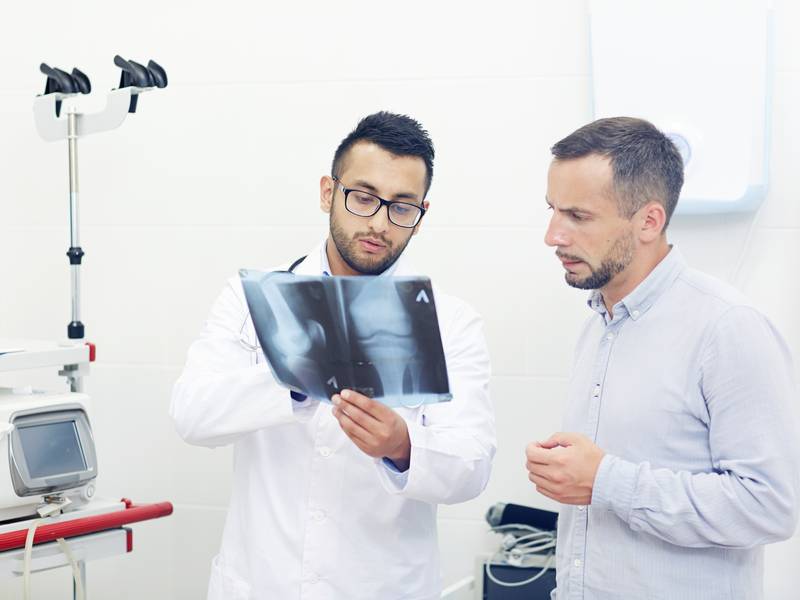An arthrogram can provide clear images of the soft tissues in the joint to provide more detailed information about joints than a traditional MRI can provide. They can help identify the cause of a symptom, such as joint pain or swelling. Arthrograms can diagnose problems in the hips, shoulders, knees, and other joints. They can help doctors evaluate their patients’ joints, diagnose problems, and develop effective treatment plans.
What Happens During an Arthrogram?
During an Arthrogram, contrast is injected into the joint under fluoroscopy guidance. During the procedure, you will be administered local anesthesia to numb the area around the joint, have contrast injected into the joint to enhance MRI imaging, and have a series of images taken of the joint. Sometimes, patients are asked to gently move the joint to provide more information on the joint and spread contrast dye.
Arthrogram Preparation & Recovery
Before an Arthrogram, you must consult with your healthcare provider to discuss your symptoms, medical history, medications, and more to ensure it is a safe procedure for you. You will be given instructions on what to wear and any other adjustments that need to be made to ensure a safe and effective process. After the procedure, you may experience mild discomfort and soreness and will need to schedule a follow-up appointment to evaluate your results.
Arthrogram at Michigan Diagnostics
If you need an Arthrogram in Sterling Heights, MI, Southfield, MI, Detroit, MI, or the surrounding areas, Michigan Diagnostics Center can help you. Your images will be interpreted by board-certified, subspecialty-trained radiologists who are active in their field. We are open seven days a week and provide evening and weekend appointments. We provide transportation and secure and private changing rooms to all patients in need. We pride ourselves on delivering results within 24 hours. To learn more about us, call us at 248-244-0757 or contact us online.

